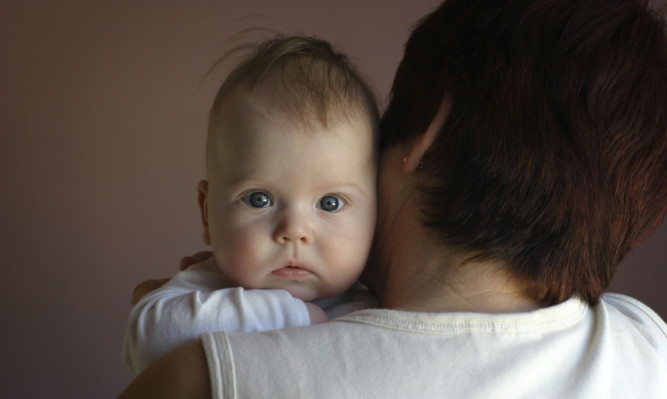
Eleven newborn children a day are being taken from their mothers and put into foster care, The Sunday Post can reveal.
Damning figures reveal the number of tots aged under three months being removed by social services has increased by 25% over the past five years.
Experts believe a spate of high-profile child abuse cases such as that of Peter Connelly, known as Baby P, who died in London in 2007, may be fuelling alarm among social workers.
However there are fears some babies are being taken from their parents because swingeing local authority budget cuts mean councils do not have enough resources to assist mums who need extra help and see such action as an easier step.
David Shemmings, a professor of Child Protection Research at the University of Kent, said: “Since the death of Peter Connelly and others, there has been a rise in referrals to child protection services.
“But the increase in babies under three months taken into care and placed with foster carers may also be related to two other factors. There is an increased awareness of the effects of foetal alcohol spectrum disorder and we’ve seen a move towards the adoption of babies at an early age, based on the belief that child maltreatment is best addressed by placing them with loving substitute parents as quickly as possible.
“What may also have contributed is a significant reduction in some parts of the country in voluntary and statutory services aimed at supporting mothers and families in the early months of a child’s life.”
During 2010/11, 3,370 babies were taken from their parents and placed in foster care in England but in 2013/14 it soared to 4,190.
Over the past five years, 19,220 babies have been placed in foster care which peaked at a rate of 11 a day over the past two years.
Alan Wood, of the British Association for Adopting and Fostering, said cuts to local council budgets have also played a role.
He said: “Local safeguarding boards, who have representatives from a multitude of agencies involved in safeguarding children, face challenges linked to the training of staff and maintaining a strategic oversight in relation to all aspects of safeguarding.”
In June figures released by union Unison revealed between 2010/11 and 2012/13 councils cut £147 million from the children’s social services staff budget.
Figures compiled by Labour reveal more than 400 Sure Start centres, which aid parents who need extra help, closed within the first two years of the Coalition Government taking office.
A Department for Education spokesman said: “The last year has seen a record high in the number of adoptions and an increase in the number of families approved to adopt. This means thousands more of our most vulnerable children are finding the loving and permanent homes they need.”

Enjoy the convenience of having The Sunday Post delivered as a digital ePaper straight to your smartphone, tablet or computer.
Subscribe for only £5.49 a month and enjoy all the benefits of the printed paper as a digital replica.
Subscribe